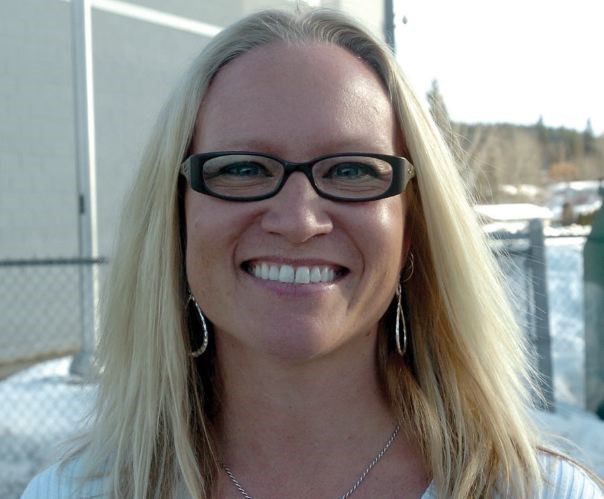As a teacher from Hazelton, where 85 per cent of the student population is aboriginal, Sheena Seymour knows her students don't like to talk about the problems of their home life and their sometimes dysfunctional families.
Human traffickers love that element of secrecy. It's helps them recruit kids as young as 10 into their gangs. They come to the schoolyards offering gifts of iPads, cell phones, drugs and money, anything that will lure those kids away from familiar surroundings to the larger towns or cities, where they take control of their lives.
Seymour knows the problem is real, and it's affecting small aboriginal communities all over B.C., which is why she came to Prince George on Saturday for the B.C. Teachers Federation's Stolen Lives: Calling Back Our Spirits conference at Nasdeh Yoh elementary school.
"This conversation is long overdue," said Seymour, a teacher at Hazelton secondary school. "It's important that we know how to deliver this information to students. We need to find a way to get them to support one another and help each other because they are their own community and youth are quiet about what goes on."
She said often hidden world of human trafficking has roots in the history of residential schools -- the forced relocations away from families, the imposed loss of native culture and language, and the sexual and physical abuse that went on in those schools. Parents or grandparents are still trying to recover from the scars and social isolation that dates back to their school days. That legacy of keeping those nightmares bottled up inside is still being passed down to the next generations of students.
"It's just entrenched them," said Seymour. "It's all about the we-don't-talk about-it stuff. The youth today up there love where they live, but they have to get past this history of 'don't tell.' Teachers need to educate themselves about this topic. It's fairly new, and when they think of human trafficking they think of international human trafficking. They don't think of it as actually happening right on our soil, and that the aboriginal youth are being targeted. They are vulnerable and that's why they are being exploited."
Melissa Hyland, formerly the program analyst for B.C.'s Office to Combat Human Trafficking in Persons, explained to teachers why aboriginal youth are more vulnerable than mainstream population and why they get caught up in human trafficking, pointing to the effects of colonization and residential school racism; exposure to physical and sexual violence in their home communities; the disconnection of families tied to the foster care system; lack of transportation that forces some to hitchhike on the B.C. highways; extreme poverty, and the fact aboriginal women are three times more likely than the mainstream population to suffer violence.
Traffickers, often family members, introduce kids to drugs and get them hooked, then threaten to tell their parents about what they've been up to if they refuse to become drug traffickers themselves. If they get involved in gangs, then decide to leave and return to their hometowns, they suffer embarrassment and are shunned, becoming further isolated.
Young girls are lured by traffickers who pose as their boyfriends, or it could be a cousin or aunt, who will take them to parties, slip them a date rape drug, then videotape the girl's involvement in sexual activity. If they don't co-operate, the trafficker threatens to show the video to everybody.
"They blame themselves and they don't realize there is a way out," said Hyland.
The Office to Combat Human Trafficking in Persons has been working with the BCTF for five years, travelling around the province to inform teachers about prevention and intervention strategies while developing an eight-hour online curriculum that's now available to schools at pssg.gov.bc.ca/octip/. In northern B.C., the BCTF has hosted human trafficking conferences in Chetwynd, Williams Lake and Prince Rupert, Saturday's event was the first in Prince George.
Ashley Hope, the youth at risk constable for the Prince George RCMP, says teachers have a critical role in preventing traffickers and gang members from recruiting youth, and they have to be proactive.
"Teachers can't be afraid to reach out and ask for help, it's a process that's starting now and some schools are more effective than others, but they hesitate because they don't want to get police involved," said Hope.
"Too often, because of Hollywood and the media, it's the girls from Hungary or Turkey being victimized and they forget we have susceptible people in our communities who unwittingly or knowingly open themselves up to being victimized in that sense. Everybody, including police officers, needs to try hard to educate ourselves as to what [human trafficking] looks like."



